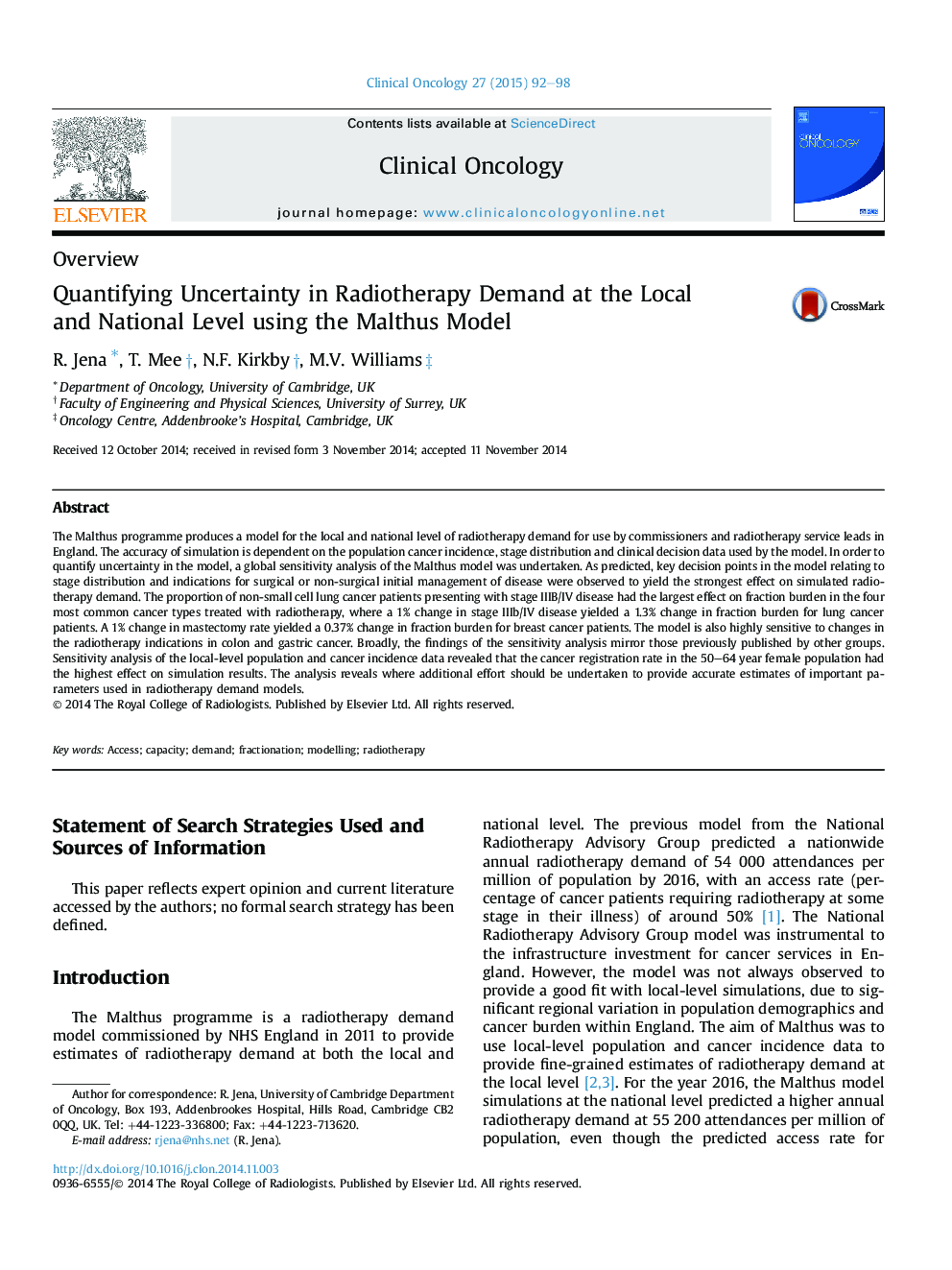| Article ID | Journal | Published Year | Pages | File Type |
|---|---|---|---|---|
| 5698396 | Clinical Oncology | 2015 | 7 Pages |
Abstract
The Malthus programme produces a model for the local and national level of radiotherapy demand for use by commissioners and radiotherapy service leads in England. The accuracy of simulation is dependent on the population cancer incidence, stage distribution and clinical decision data used by the model. In order to quantify uncertainty in the model, a global sensitivity analysis of the Malthus model was undertaken. As predicted, key decision points in the model relating to stage distribution and indications for surgical or non-surgical initial management of disease were observed to yield the strongest effect on simulated radiotherapy demand. The proportion of non-small cell lung cancer patients presenting with stage IIIB/IV disease had the largest effect on fraction burden in the four most common cancer types treated with radiotherapy, where a 1% change in stage IIIb/IV disease yielded a 1.3% change in fraction burden for lung cancer patients. A 1% change in mastectomy rate yielded a 0.37% change in fraction burden for breast cancer patients. The model is also highly sensitive to changes in the radiotherapy indications in colon and gastric cancer. Broadly, the findings of the sensitivity analysis mirror those previously published by other groups. Sensitivity analysis of the local-level population and cancer incidence data revealed that the cancer registration rate in the 50-64 year female population had the highest effect on simulation results. The analysis reveals where additional effort should be undertaken to provide accurate estimates of important parameters used in radiotherapy demand models.
Related Topics
Health Sciences
Medicine and Dentistry
Oncology
Authors
R. Jena, T. Mee, N.F. Kirkby, M.V. Williams,
